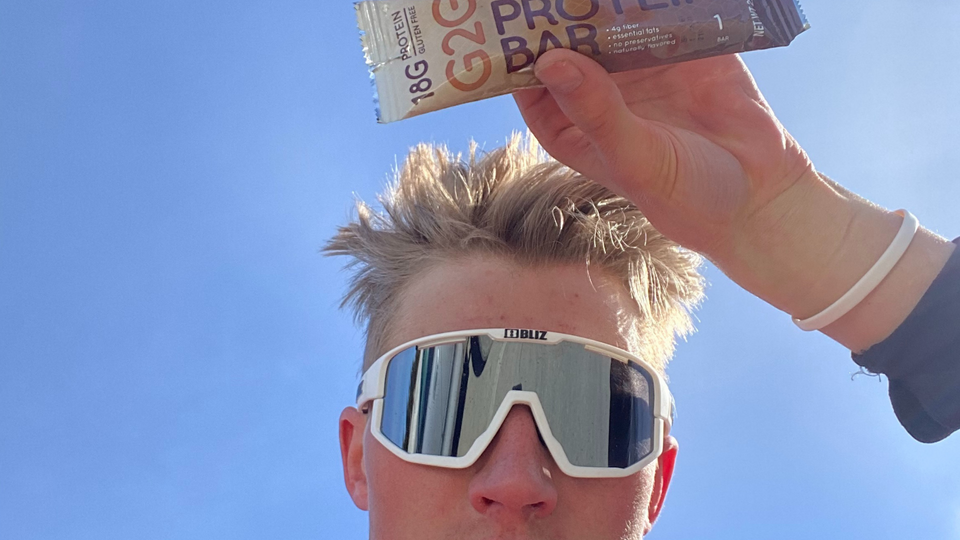Posted by Gus Schumacher on Jun 16th 2021
Fueling For Training
Everyone knows you have to eat a little differently for training performance, right? I did, but I never really took the time to learn about what food and drinks made me feel and perform best on big training days. This spring I got to sit down with a nutritionist named Jessica at Bend camp, and ask her about all things fueling, especially for hard training. These are my takeaways.
Pre-training
Before training, you basically don’t want to go in hungry, so having a good meal well before can be a good way to prepare. If that’s not an option, something lower-volume, with a mix of carbs, protein, and fats can be good for a longer release of energy. Some examples I’ve been doing have been almond milk and cereal with some peanut butter in the morning, or toast and avocado or peanut butter, or fruit and nuts. The peanut butter and fattier stuff helps the snack absorb a little slower so glucose doesn’t spike and drop before you actually start.
During training
This is the big one. I’ve heard it so many times that I need to eat a lot while training, but I never really felt like it, and didn’t feel like it made a difference. I felt like I always had energy if I ate before, and didn’t really eat during training unless it was over 2 hours. Jessica told me more about the reasons behind eating during training, and how they actually relate more to recovery than to energy during the session. The idea is to make sure your body doesn’t have to burn a bunch of muscle glycogen to keep you going, because then when you finish, you have to restore it, and the energy it takes to do that is energy that could be going towards training adaptations. The crazier part about this (I thought), was that you can oxidize up to 1g/kg/hour of carbs!! This means if you’re 80kg, you can (and should) be trying to consume 80g of carbohydrates per hour!!! That’s a lot, and it’s really hard to actually do in practice. It also depends a little on your training intensity and if you ate right before. Trying to reach those numbers, or at least get close, gets more important as your training demand increases, as harder sessions can really deplete your glycogen stores in a hurry.
After learning more about the recovery aspect of this, I’ve really made it a goal to hit at least 0.5g/kg/hr of carbs, especially if my session is over 90 minutes, or I’m doing more than one session in a day. I’ve been doing it by mixing a strong sports drink, and having a pack of gummies or some fruit and a bar in my water belt. I really prefer fruit, but it’s a little bigger and less convenient sometimes. And you probably don’t need to go crazy about it, but it is amazing how much fuel your body can burn, even in easy sessions. Plus, having food throughout a workout can make you feel so much better afterwards.
After training
I learned that a good mix of protein and carbs right after training is one of the best ways to start recovery. I guess I sort of knew that, but it means even right when the interval set is done, and before the cool down. The sooner your body has those building blocks, the sooner it can start the repair and recovery process, which is what you want. I’ve been a big fan of G2G bars lately (they’re awesome if you like peanut butter, so I love them). Also the ingredients are really basic, and they have a good balance of carbs, protein, and fat. If you want to try them, go to https://g2gbar.com?ref:gus and use code “Gus” for 15% off. After you get home, you want to get a good full meal too, and then you’re ready to reset for the next one!
I hope this information can be helpful to people. Don’t take it as science, it’s just my interpretation and application of an actual expert’s knowledge. And if you don’t totally believe me, just try mixing a strong sports drink and having some gummies during your next long or hard workout, and see how you feel. I also noticed my body started using that fuel better the more I ate during training, so sometimes it takes a little adaptation.
Food is fuel!!
Gus

